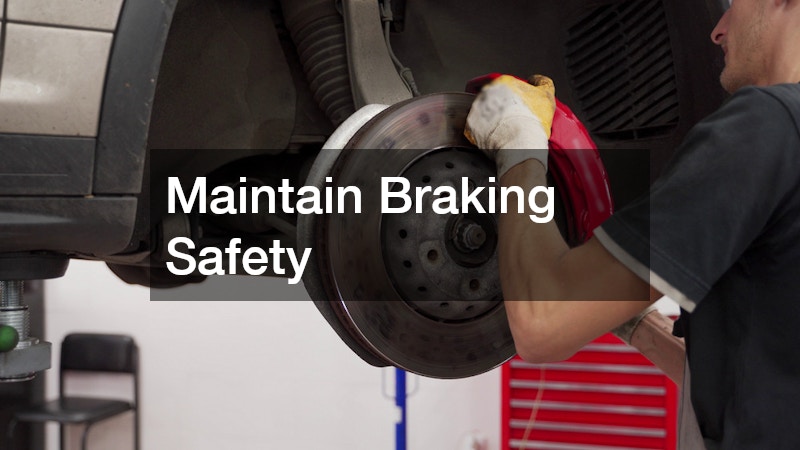Owning a vehicle is more than just a convenience; it’s a significant commitment that requires knowledge, attention, and regular maintenance. From understanding the intricacies of keeping your engine healthy to navigating the complexities of legal matters, every vehicle owner should be equipped with the essential information to maximize their vehicle’s potential and ensure its longevity. This article will explore ten crucial aspects of vehicle ownership that every driver should be familiar with, covering everything from auto repair to insurance considerations and selling practices.
Keep Your Engine Healthy
An engine is the heart of any vehicle, and maintaining its health is crucial for ensuring performance and efficiency. Regular oil changes, timely filter replacements, and using the right type of fuel and oil are fundamental practices. An unhealthy engine not only affects fuel consumption but can also significantly shorten the vehicle’s lifespan, leading to frequent auto repairs. Monitoring engine temperature and performance through a diagnostic app can help prevent costly breakdowns.
To specifically keep your engine running smoothly, it is essential to follow the maintenance schedule provided by your vehicle’s manufacturer. This usually includes checking and replacing worn-out belts, having spark plugs evaluated, and ensuring the cooling system is functioning properly. Uneven engine noises, loss of power, or excessive fuel consumption are indicators that professional attention is needed. Keeping a log of engine performance trends can alert you to early issues before they worsen.
Moreover, keeping your engine healthy extends to educating yourself on how to handle minor issues before they become critical. Learning basic troubleshooting skills can prevent many problems. Digital vehicle inspections can be a great tool to monitor the health of your engine meticulously, enabling owners to act swiftly if discrepancies are noted. Regularly reviewing your vehicle’s engine alerts and dashboard warnings ensures prompt action and can extend engine life.
Maintain Braking Safety

Brakes are one of the most essential safety features of a vehicle. Ensuring their effectiveness is key to avoiding accidents and ensuring your safety and the safety of others on the road. Regular brake repairs and maintenance can prevent costly accidents and enhance your driving confidence. Properly functioning brakes also improve fuel efficiency by reducing unnecessary drag and wear on the braking system.
Specifically, listen for unusual noises when applying the brakes, like squealing or grinding, which can signal that it is time for brake repairs. Ensuring the brake pads are thick enough and the rotor surfaces are not worn is also vital. It’s crucial to replace the brake fluid as recommended by your vehicle’s service manual because compromised brake fluid can reduce braking efficacy. Regularly checking brake lines and hoses can prevent leaks and maintain optimal braking performance.
The importance of maintaining good braking systems cannot be overstated. In-depth digital vehicle inspections by experienced auto mechanics can uncomplicate the maintenance process, ensuring every detail is scrutinized. This helps avert potential brake failures, thus safeguarding you during unexpected road conditions. Educating yourself on proper braking techniques, such as gradual pressure application, also enhances overall safety.
Preserve Car Appearance
The exterior appearance of your vehicle is more than just for aesthetics; it reflects the care you give to your vehicle. Regular visits to a car body shop for paint touch-ups, dent removals, and corrosion checks can maintain your vehicle’s value and appeal. Using protective coatings and sealants can provide an extra layer of defense against environmental damage.
Specifically, frequent washing and waxing will prevent dirt accumulation and paint damage from harmful UV rays. Polishing ensures the paint remains glossy and vibrant, while details such as cleaning and treating the car’s interior build a pleasant driving environment. Cleaning wheels, tires, and trim regularly prevents grime buildup that can cause long-term deterioration.
Preserving your vehicle’s appearance also involves protecting the undercarriage, where damage often goes unnoticed. Anti-rust treatments and routine inspections in a car body shop can help in preserving both functionality and appearance, offering corrosion protection and enhancing long-term vehicle aesthetics. Applying undercoating sprays can prevent rust from road salts and moisture, further extending your car’s life.
Understand Coverage Options

Vehicle insurance is not merely a legal requirement; it is a foundation for financial protection in case of accidents or unforeseen events. Knowing the available coverages and selecting the suitable options for your vehicle is crucial and can influence your overall ownership costs. Regularly reviewing your policy ensures you are paying for the coverage you actually need.
A comprehensive understanding of coverage options ensures that you are adequately protected. Liability, collision, and comprehensive insurance cover different aspects of risk, and the choice of an insurance company should be based on the breadth of coverage and reliability of service provided. Comparing quotes from multiple insurance providers can uncover potential savings and better coverage options.
Furthermore, staying informed about the nuances of each policy empowers you to make educated choices that align with your needs and budget. Insurance can protect against theft, damage, and personal injuries, all of which contribute to overall peace of mind while on the road. Utilize resources from the insurance company to better understand what each policy entails and its relevance to your situation. Maintaining documentation of past claims and repairs can streamline any insurance process.
Maximize Vehicle Value
Maintaining the value of your vehicle is in every owner’s interest, whether planning to keep it or eventually sell it. Similar to preserving appearance, ensuring mechanical integrity and regular upkeep influences how much a vehicle depreciates over time. Regularly detailing and maintaining both interior and exterior finishes also contributes to long-term value.
More specifically, recording regular maintenance and using only quality parts during repairs can showcase a well-cared-for vehicle. This practice increases the resale value and ensures that when you finally decide to ” sell my car,” you get top dollar for it due to its excellent condition. Having receipts and maintenance logs organized can reassure potential buyers of your vehicle’s proper care.
To further enhance the value, keep all maintenance records, provide detailed disclosures to potential buyers, and establish a good relationship with reputable places that provide frequent servicing, such as an auto mechanic. These practices build trust with buyers and demonstrate the worth of your vehicle. Highlighting any upgrades or recent service improvements can also increase the perceived value when selling.
Know the Used Car Market

Understanding the dynamics of the used car market is crucial for both buying and selling vehicles. The used car market offers a spectrum of opportunities and challenges, where price flexibility and vehicle history take center stage. Awareness of seasonal trends and demand spikes can help you buy or sell at optimal times.
Specifically, before buying or selling, thorough research on pricing trends, market demands, and specific make and model histories can go a long way in ensuring a fair transaction. Used cars can often offer great value, but it’s essential to be astute about their past ownership and accident histories. Online marketplaces and valuation tools can provide insight into fair pricing and help avoid overpaying.
Additionally, utilizing resources such as vehicle history reports and dealer reviews ensures you are making informed decisions. If considering selling or purchasing, seeking advice from professionals and checking with reputable sources about the specific used car will set you on the right track to a great deal. Test-driving multiple vehicles and inspecting them in person further safeguards against surprises.
Embrace Tech Inspections
The landscape of vehicle inspections is changing with technology, and embracing these changes can dramatically improve how you manage your vehicle’s health. Digital vehicle inspections offer a new way forward, highlighting precise details and enhancing overall maintenance strategies. These inspections also allow vehicle owners to track repairs over time and identify recurring issues.
Digital vehicle inspections provide detailed reports and include photographs that help in better understanding any issues highlighted. Tools used in these inspections can identify potential problems before they become serious, saving on long-term repair costs and making informed maintenance decisions. Integrating these digital insights with a maintenance calendar ensures timely repairs and preventive care.
Such technological advances can be further complemented by working with an auto mechanic who understands these digital tools. Their insights, combined with technology, can keep your vehicle in top condition, ensuring both safety and performance are prioritized to maximize vehicle longevity. Owners can also use mobile apps to schedule inspections and receive alerts on emerging issues.
Choose Skilled Mechanics

Vehicle owners often encounter challenges in selecting the right professionals for their maintenance needs. Choosing a skilled auto mechanic can make a significant difference in the quality and reliability of repairs and regular servicing your vehicle receives. A highly skilled mechanic can identify hidden problems and prevent costly future repairs.
Signs of a qualified mechanic include certifications, an established reputation, and a commitment to continued learning in the field, which ensures they are up to date with the latest automotive technologies and practices. Ensure they have experience with your specific vehicle type, as specialized knowledge can further protect your investment. Mechanics familiar with your vehicle brand are often faster and more accurate in diagnosing issues.
Furthermore, building a relationship with a trusted mechanic ensures consistent care for your vehicle and provides peace of mind, knowing your vehicle is in capable hands. Their advice can be invaluable in avoiding unnecessary repairs and prolonging your vehicle’s performance and lifespan. Establishing open communication with your mechanic helps you understand each repair and maintenance step clearly.
Handle Legal Challenges
While owning a vehicle, encountering legal challenges may be inevitable, especially concerning auto accidents, warranty claims, or insurance disputes. Understanding how to navigate these situations is crucial for protecting your rights and mitigating financial impacts. Being proactive with legal knowledge can prevent complications and costly delays.
If involved in an accident, consulting an auto accident lawyer can offer valuable insights into how to handle claims and potential litigation. They assist in collecting evidence, negotiating with insurance providers, and offering legal representation if needed. An experienced lawyer can also advise on documentation and timelines, ensuring your claim is handled efficiently.
Being proactive in handling legal challenges involves knowing your rights, acknowledging the terms and conditions of your insurance policies, and understanding warranty stipulations. Getting advice before any legal entanglements become unmanageable ensures that you are well-prepared to deal with such scenarios. Keeping organized records of all vehicle-related incidents supports legal proceedings if disputes arise.
Service Luxury Vehicles
Servicing luxury vehicles, such as Audi or other high-end brands, involves unique challenges that differ from other vehicles. Specialized knowledge and tools are often required to maintain these cars in prime condition and to adhere to their specific maintenance requirements. Luxury vehicle owners should also consider specialized insurance coverage to protect their investment.
Working with mechanics or service centers familiar with luxury brands ensures that the quality of service meets the requirements set out by the manufacturer. This often involves using dealership service centers or certified independent garages specializing in luxury car maintenance. Regularly updating software and electronic systems in luxury vehicles is also critical for maintaining performance and safety.
Moreover, for specialized procedures like an Audi repair, entrust your vehicle to professionals proficient with the brand. Regular servicing at the manufacturer-recommended intervals ensures every component, from the engine to the electronic systems, remains in optimal condition, retaining the performance and luxury features of the vehicle. Keeping a record of all specialized maintenance adds value when reselling or trading in a luxury vehicle.
Being a vehicle owner comes with a variety of responsibilities that transcend just operating and maintaining a car. From knowing how to keep your engine healthy, maintaining brake safety, and preserving the appearance, to understanding insurance and maximizing vehicle value, each factor plays an essential role in ensuring a satisfying ownership experience. Navigating the used car market, embracing technological advancements like digital inspection, and engaging with skilled mechanics further enhances vehicle care. Confronting any legal challenges with informed decisions and understanding the nuances of servicing luxury vehicles, particularly in specific scenarios like an Audi repair, rounds out the broad spectrum of knowledge every vehicle owner should acquire. Staying informed and proactive in these areas empowers owners not only to protect their investments but also to enjoy a safe and reliable driving experience.
